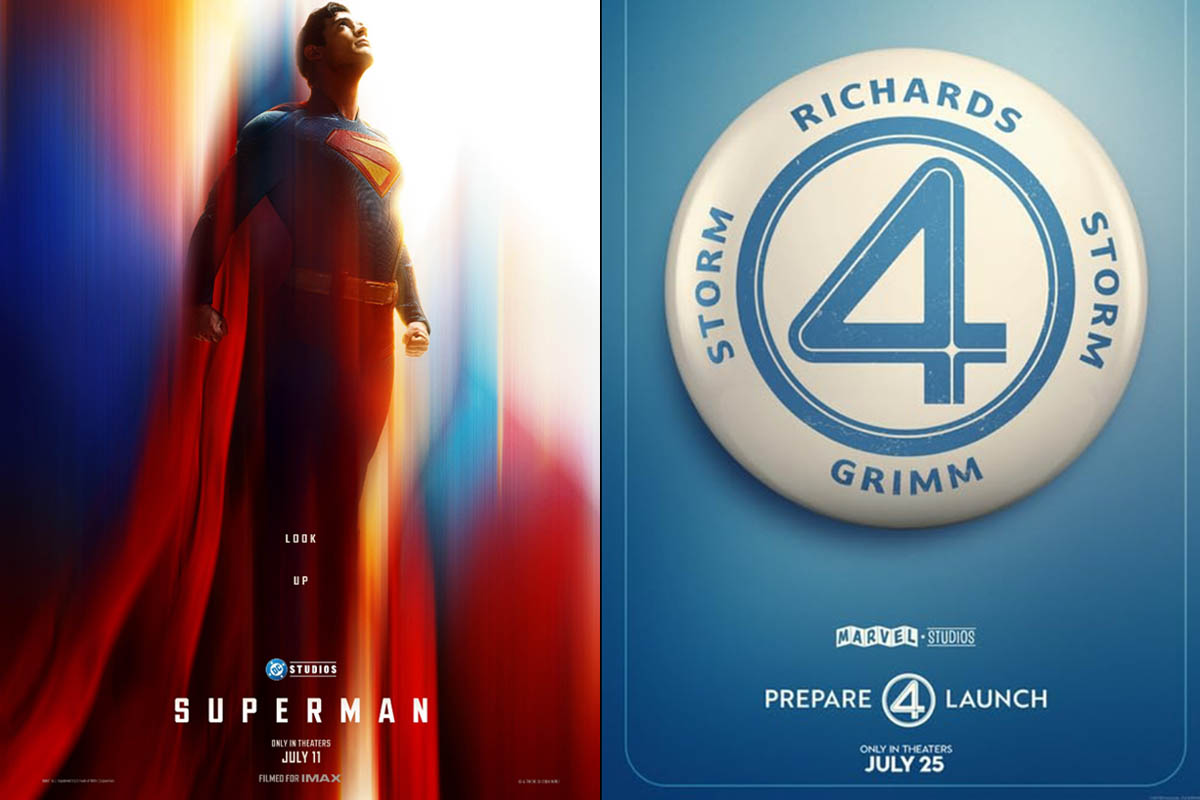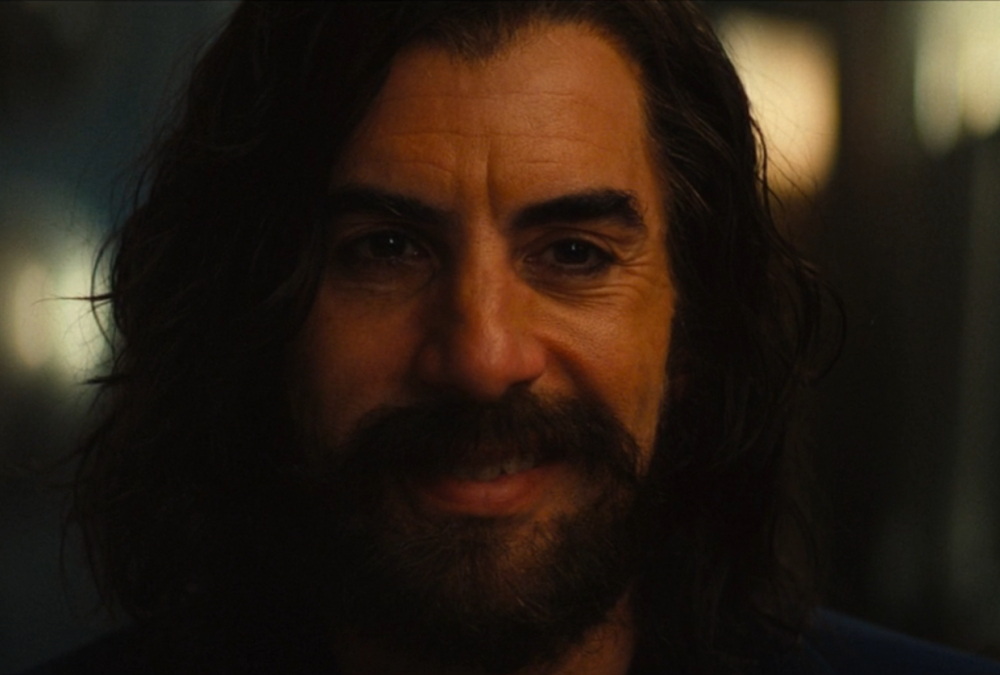
We are a crossroads in the United States. More than ever, we see a polarization of ideals and a polarization of what is considered to be the “All-American identity.” And yet, in spite of all this, we can see even the most divided communities rally together in favor of something grand. That is what is covered in the new documentary The All-Americans.
“Home to the nation’s largest Latino immigrant population,” the synopsis reads, “East Los Angeles sits squarely in the crossfire of debate about American identity. Yet every November, this community comes together for a distinctly American event, drawing 25,000 proud locals to one of the country’s fiercest high school football rivalry games: The East L.A. Classic. THE ALL-AMERICANS follows four students seeking glory on the field, while grappling with personal obstacles and striving to make sense of their community’s place in today’s America.”
I had a chance to speak with director of the film, Billy McMillin, where we discussed the making of it, the message, and the overall debate surrounding the American identity.
McMillin: Thanks, how are you?
LRM Online: Good, thank you for taking the time to chat about the All-Americans.
McMillin: Yeah, no problem. Thanks.
LRM Online: Great, so this documentary was very interesting and actually I’m from LA, and I’m not from that part of LA, but I actually learned a lot on this documentary. Can you tell me about your experience, and I mean I imagine you probably learned a lot as well the same way.
McMillin: Yeah, I mean likewise I’m not from that part of town. Prior to starting to look into the film, I didn’t have really any knowledge of East LA. And that was kind of a big part of why I got interested in the first place. The fact that there was this incredibly large football game that happened to every year like clockwork, and had such a large attendance was so coveted by the community. And yet this was a largely immigrant community, that I knew very little about, and it was 10 miles from me was incredibly interesting to me.
LRM Online: So this documentary… It is based on two football team rivals. You have the Garfield high and Roosevelt high. And this filming, for how long did it take? I imagine, it seems like it was the whole football season, correct?
McMillin: Yeah, so the primary filming was basically the football season. I mean, which football season actually starts in June. The season starts in August and goes through, well I think it’s January. However, the football season for the players actually starts all the way back at the end of January. So they start on the field and in the weight room at the end of January, which is when I started filming with both teams. And that went all the way through until the end of the season, but then I kept following the kids because there was a lot of issues that were going on in the community. There was a lot more of their kind of development because as you see in the film, the football story is one aspect of the story that we cover. But, what I wanted to do ultimately was use, the framing of this football match at this rivalry game between these two teams, as a vehicle to explore these kids, their lives and the community at large.
LRM Online: Yes, like you said, there was quite a few more stuff that your documentary did cover especially going in depth with the players. I mean looking at the backstory of them, that was amazing. Several elements then from there you seem to cover including immigration, racism, et cetera. How did you find that balance? But yet not, you lose the aspect of covering what the documentary is about, which is the football teams. The rivalry.
McMillin: Yeah, so I mean this is kind of what you hope for in every documentary. Is that, you’re exploring larger issues but using something that’s really relatable, as a way to get people incentivized into discussing things that are bigger topical issues. But you want to invest in character, because that’s what we all are, we’re all characters in our own stories. And so, I had wanted to do a film that explored American identity from the beginning that was kind of… It’s a thing that I feel like it gets polarized a lot and people see other people in the country as the other, and are unwilling to relate in a lot of cases. And that was one of the main reasons why I wanted to make the film in the first place.
These kids in particular I found incredibly compelling, not only because they put themselves into a sport that is incredibly hard to do. It’s a tough sport. But yet the background that these kids came from, and the varieties of backgrounds was pretty incredible. Mario Ramirez, one of my main characters that I found, was nearly a straight A student, comes from a mixed status family who lives in a small house with 14 people living in this house of extended family.
Many of the members of the family in his house, fear deportation or fear those types of remedies. And yet Mario, he has such a great love for his community but also, wants to expand and wants to go to a great college and make something really valuable out of his life. You have somebody like Joseph Silva on the other team, on the Canterbury Bulldogs. Who is a kid who has had an incredibly rough life, up to that point as a sophomore he’s already has, both of his parents have been in and out of jail. His entire life, he’s been basically taking care of himself and been brought in by his grandmother. Has a child as a sophomore with his girlfriend and is now trying to basically provide for an infant. And try to make a family as a sophomore in high school, living in an incredibly precarious situation.
And one of the things that… With every documentary, you find these kinds of surprises as you go into the domain. I think I could’ve suspected that I would’ve found characters similar to Mario and Joseph. Those are characters that I think are present in most situations. But Stevie Williams was one of those characters that I found was a real interesting character that is very significant to this particular story. Being that Stevie is young African American kid from South Central and comes in from South Central to… Because East LA ironically is actually a better neighborhood than his neighborhood, to get an education and to play football. And so, he’s met with a lot of frustration from older people in the community as kind of an outsider and so has to deal with that. Has to grow his family of Garfield once he gets there and find acceptance. There was a lot of the diverse stories that dealt with immigration on both the macro and the micro level, that I found really compelling.

LRM Online: Right, you pretty much covered up all the players I wanted to talk to you about. But yes, starting with Mario Ramirez. I mean, one of his lines he said he was afraid and did not want to end up like another Mexican screw-up, which are really harsh words for all his effort and hard work. I mean, getting exempted into high prestigious universities, and then yet at the end not being able to attend and accept because of economical reasons.
McMillin: Yeah, and I mean I can-
LRM Online: I cried actually that part, because it was so sad.
McMillin: I know, having got to know Mario through the course of… I mean I sang with Mario for three years. And so, watching this kid struggle and work so incredibly hard and work multiple jobs and try to keep on top of the studies. And yet has no parental support, has very little academic support, and has to kind of do all of these things on his own. I think it shows you the complexity and how hard it is for kids. Even kids that strive for really great things, and at are incredibly gifted, very intelligent kids, very motivated kids. There are still coming from the situation that Mario is coming, there are still so many roadblocks that make it hard to actually get his dreams fulfilled.
LRM Online: Also, when it comes to Stevie Williams, and then there was two right? Two African American players initially. And what they, one of them was saying how… I mean in this case the irony of the situation about how usually Hispanics, Latinos complain about experience in racism. But yet in this documentary, you have this kid of receiving the same from these Latin kids. Can you discuss a little bit just being an outsider and being African American?
McMillin: Yeah, I mean I think it’s important that we show that everybody has these outsider biases. And that, that’s something that… There’s a reason why we have these outside biases and why people cling to them. Because you’re clinging to traditions that are valuable to you, and that’s the thing that, we need to empathize with people that cling to those same sorts of biases in the larger debate over immigration. Yet like stand firm and understanding that everybody on both sides of the equation has value. And that’s what’s Stevie in his character really represented to me. I mean, on a personal level Stevie is an incredibly sweet kid, a very smart kid.
He comes from a tricky background, his father had been in jail, on a kind of a bogus charge for about 17 years. And so, Stevie grew up just as his mother, who’s doing a wonderful job raising her kids in an incredibly difficult situation. And gives Stevie this opportunity to go attend to Garfield high school, and really be a star on the field. But that comes with challenges, and that comes with gaining acceptance. And ultimately I think Stevie’s a much better kid for it by venturing outside of a comfort zone and gain acceptance into this school. But he does definitely have to go through a lot of challenges, Stevie’s now in college out in Kansas and is doing quite well. Is still playing football on the field.
LRM Online: Oh, that’s great. So I know in this film you have a executive producer, Becky G. Did you have a chance to work with her in this? Did she have any involvement with you in this?
McMillin: So, we’ve been really excited to have Becky G come on as part of this film, and really try to get the film a wider viewing audience and show the film to basically all of the people that follow her. I think she’s an incredibly inspiring artists. One of her songs that… A lot of her songs I gravitated to because of the lyrics and kind of the real visceral ness of a lot of the lyrics in her songs. That talk about growing up in LA and having the same sort of unique challenges that these kids did. And so, I think her voice is going to be really valuable in helping to make these kids actually, their stories get seen by a wider audience.

LRM Online: Well great. That’s pretty exciting, and just since we seem to have a little more time. Can you tell me about the beginning part, and there were some in between about the voices narrating that you had, that had some pretty strong words and saying. I mean we had one individual that said “We need walls to keep the barbarians out before us. And we need walls to keep America America.” Did you get these audio from elsewhere or was it that you, that created that, can you discuss those?
McMillin: No. Yeah, all of those that you hear are actual right-wing radio hosts. These are all real radio stories that I’ve found as I monitored radio talking about immigration through the last couple of years. I would just listen to right wing radio to try to hear what other people were saying and basically wanting to hear kind of bombastic language. But more so, to try to understand what are people really afraid of. And, when you get down to you… What you hear, it’s pretty reprehensible in my opinion. And so, I wanted to showcase that stuff against this community that I found very endearing and had incredible value in it. The community of East LA and Boyle Heights has incredible value and to show… So I found it really powerful to take those voices of those people that were otherizing these communities and juxtaposing against it. So that you could understand how close minded that was, how simple minded it was.
LRM Online: It’s really sad really how people have this expression of other human beings. We’re all the same, really.
McMillin: I completely agree.
LRM Online: Well, thank you so much for your time, your documentary was great I enjoyed it. I, myself, I’m Mexican and I got to learn another side of my fellow Mexicans. I was fortunate to live in a better living situation, but reality is not, everyone is as fortunate. And it’s just a reminder to be thankful for what we have and not take it for granted. So your documentary was, I loved it. I learned a lot from it.
McMillin: Oh, thanks a lot. I’m glad you enjoyed it.
The All-Americans hits select New York and Los Angeles theaters on November 8.
Don’t forget to share this post on your Facebook wall and with your Twitter followers! Just hit the buttons on the top of this page.
—–
Have you checked out LRM Online’s official podcast feed yet The LRM Online Podcast Network, which includes our flagship podcast Los Fanboys, our premiere podcast Breaking Geek Radio: The Podcast, and our morning show LRMornings? Check it out by listening below. It’s also available on all your favorite podcast apps!
Subscribe on: Apple Podcasts | Spotify | SoundCloud | Stitcher | Google Play

 FOR FANBOYS, BY FANBOYS
Have you checked out LRM Online’s official podcasts and videos on The Genreverse Podcast Network? Available on YouTube and all your favorite podcast apps, This multimedia empire includes The Daily CoG, Breaking Geek Radio: The Podcast, GeekScholars Movie News, Anime-Versal Review Podcast, and our Star Wars dedicated podcast The Cantina. Check it out by listening on all your favorite podcast apps, or watching on YouTube!
Subscribe on: Apple Podcasts | Spotify | SoundCloud | Stitcher | Google Play
FOR FANBOYS, BY FANBOYS
Have you checked out LRM Online’s official podcasts and videos on The Genreverse Podcast Network? Available on YouTube and all your favorite podcast apps, This multimedia empire includes The Daily CoG, Breaking Geek Radio: The Podcast, GeekScholars Movie News, Anime-Versal Review Podcast, and our Star Wars dedicated podcast The Cantina. Check it out by listening on all your favorite podcast apps, or watching on YouTube!
Subscribe on: Apple Podcasts | Spotify | SoundCloud | Stitcher | Google Play



